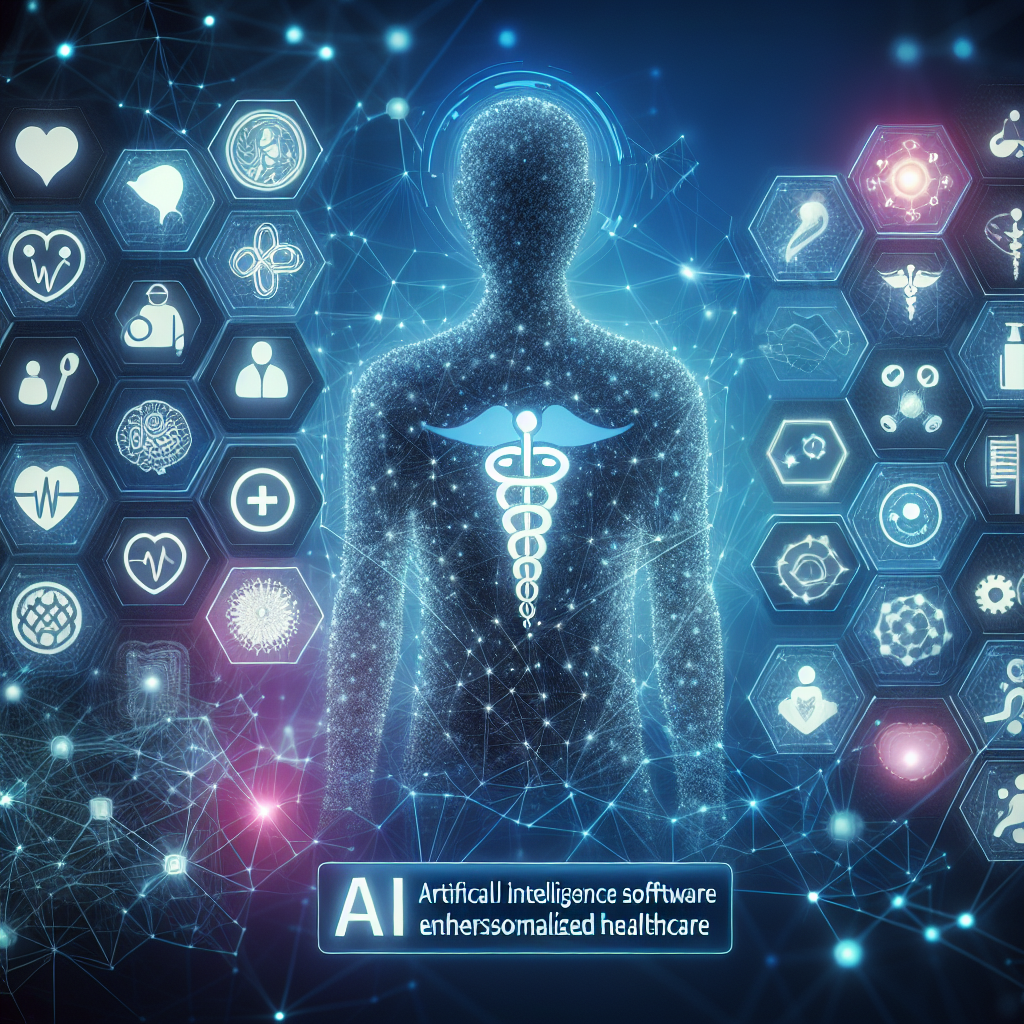In recent years, artificial intelligence (AI) software has revolutionized the healthcare industry, particularly in the realm of personalized medicine. By utilizing advanced algorithms and machine learning techniques, AI software can analyze vast amounts of data to provide tailored treatment plans and improved patient outcomes. In this article, we will explore how AI software is enhancing personalized healthcare and its potential impact on the future of medicine.
Personalized healthcare, also known as precision medicine, is a groundbreaking approach that takes into account individual variability in genes, environment, and lifestyle for each person. This allows for more targeted and effective treatment options, as opposed to the traditional one-size-fits-all approach. AI software plays a crucial role in personalized healthcare by analyzing patient data to identify patterns and make predictions about potential health outcomes.
One of the key benefits of AI software in personalized healthcare is its ability to process and analyze large datasets quickly and efficiently. This enables healthcare providers to make more informed decisions based on real-time data, leading to better diagnosis, treatment, and prevention strategies. AI software can also help identify subtle patterns that may not be apparent to human healthcare professionals, leading to earlier detection of diseases and more effective interventions.
AI software is also being used to develop predictive models that can anticipate a patient’s future health needs. By analyzing a patient’s medical history, lifestyle factors, and genetic information, AI software can predict the likelihood of developing certain diseases or conditions. This allows healthcare providers to intervene early and prevent the progression of diseases before they become more serious.
Another area where AI software is making a significant impact in personalized healthcare is in the field of genomics. Genomic data provides valuable insights into an individual’s genetic makeup and can be used to tailor treatment plans based on their specific genetic profile. AI software can analyze genomic data to identify genetic mutations or variations that may impact a patient’s response to certain medications or treatments, allowing for more personalized and effective care.
AI software is also being used to improve patient engagement and adherence to treatment plans. Through the use of chatbots and virtual assistants, patients can receive personalized reminders, education, and support to help them manage their health more effectively. This can lead to better outcomes and reduced healthcare costs by ensuring that patients are following their prescribed treatment plans and making healthier lifestyle choices.
Overall, AI software is revolutionizing personalized healthcare by providing healthcare providers with the tools and insights they need to deliver more targeted and effective care to their patients. By leveraging the power of AI technology, personalized medicine is becoming a reality, leading to improved patient outcomes and a more efficient healthcare system.
FAQs:
Q: How does AI software analyze patient data in personalized healthcare?
A: AI software uses advanced algorithms and machine learning techniques to process and analyze large datasets of patient information, including medical records, genetic data, and lifestyle factors. By identifying patterns and correlations in the data, AI software can make predictions about potential health outcomes and provide tailored treatment plans for individual patients.
Q: How can AI software improve patient engagement in personalized healthcare?
A: AI software can improve patient engagement by providing personalized reminders, education, and support through chatbots and virtual assistants. By offering patients real-time feedback and guidance, AI software can help them manage their health more effectively and adhere to their treatment plans, leading to better outcomes and reduced healthcare costs.
Q: What role does AI software play in genomics and personalized medicine?
A: AI software plays a crucial role in genomics by analyzing genomic data to identify genetic mutations or variations that may impact a patient’s response to certain medications or treatments. By leveraging this information, healthcare providers can develop more personalized and effective treatment plans based on an individual’s genetic profile.
Q: How is AI software being used to develop predictive models in personalized healthcare?
A: AI software is being used to develop predictive models that can anticipate a patient’s future health needs by analyzing their medical history, lifestyle factors, and genetic information. These models can help healthcare providers intervene early and prevent the progression of diseases before they become more serious, leading to better outcomes for patients.
Q: What are the benefits of AI software in personalized healthcare?
A: The benefits of AI software in personalized healthcare include improved diagnosis, treatment, and prevention strategies, more targeted and effective care, better patient engagement and adherence to treatment plans, and the ability to make more informed decisions based on real-time data. Overall, AI software is revolutionizing personalized healthcare and leading to better patient outcomes.

